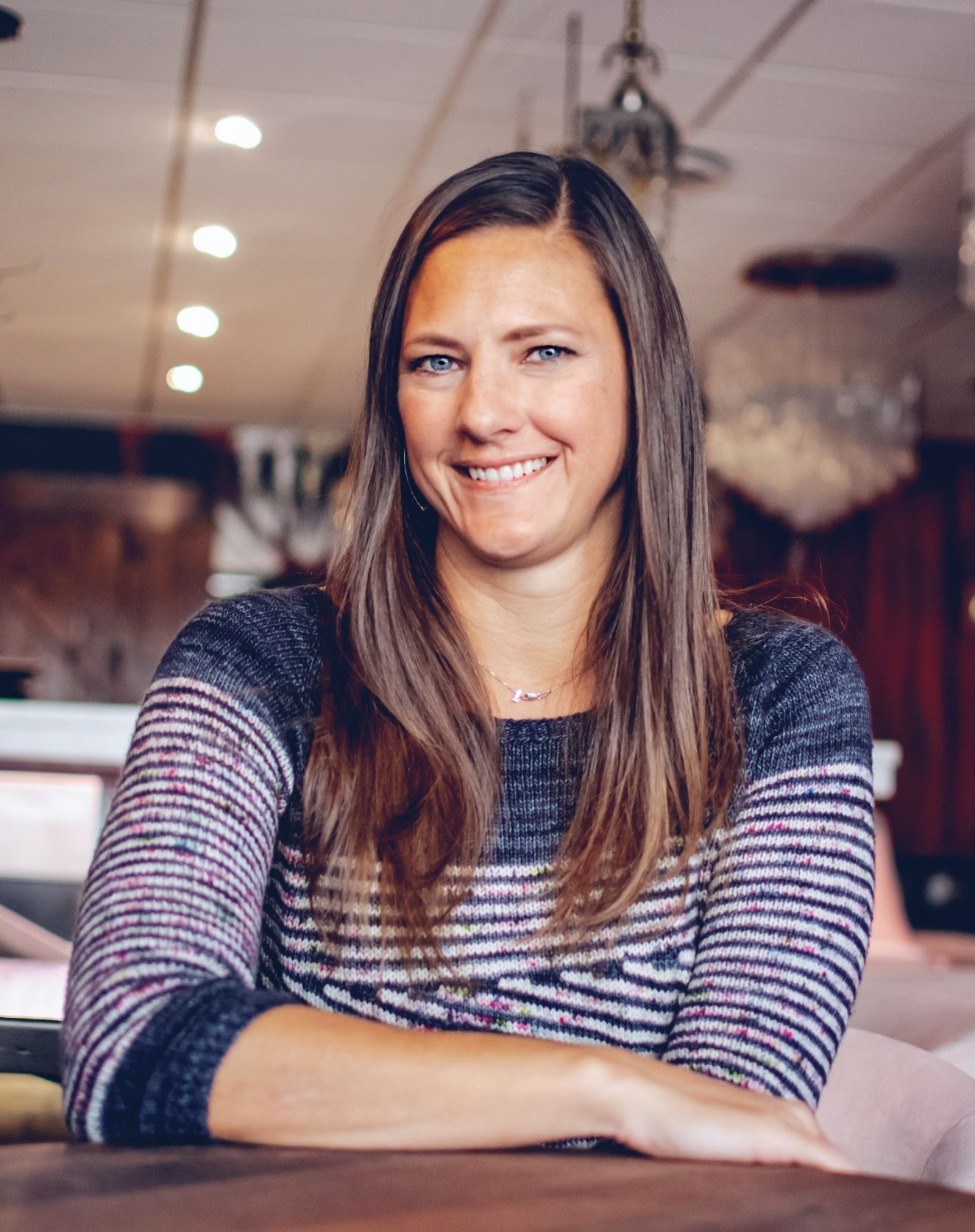Lynn Warner, research and health sciences librarian in the Donald C. Harrison Health Sciences Library, is among nine librarians selected to complete Open Education Network’s Certificate in Open Education Librarianship.
Selection into the cohort was a competitive process based on the candidate’s “experience, passion and commitment to advancing the goals of the open education movement,” according to the program’s documentation. Administered by the Open Education Network (OEN), the Certificate in Open Education Librarianship is a professional development program that aims to create effective open education program leaders who want to be stewards and advocates for high-quality, public domain, open and adaptable educational resources (OER).

The cohort begins in January, 2024 and runs through September. After completing the eight-month OEN course, in addition to serving as OER advocates, the librarians will be prepared to support and advise faculty interested in transitioning from commercial to no-cost-to-student teaching materials.
Joint funding is provided by OhioLINK and the Midwestern Higher Education Compact, which supports post-secondary education through cost-savings initiatives and policy solutions. OhioLINK’s long-term objective for the program is “to increase the availability of Open Educational Resource(OER)-specialist librarians at OhioLINK institutions to support faculty, possibly sharing expertise among the consortium’s libraries.”
In interviewing Lynn, she replied:
- What motivated you to apply?
I was motivated to apply as I have been interested in Open Access (OA) and Open Education Resources (OERs) for some time now, and I would like to learn more so I can better connect UC faculty and students with open resources. I find open education exciting for a variety of reasons; one main reason is that OERs have been shown to increase equity and help maintain student diversity as well as increasing student retention.They also can help engage students in new ways of learning, which I discovered when I worked with students to edit, modify and recreate an OER for a credit bearing class I taught previously.
- What do you hope to get from this program in relation to your job at UC?
Part of this program is to create an action plan geared to moving an open education initiative forward on UC’s campus. As a liaison librarian to the College of Nursing and the College of Allied Health, it is part of my role to develop a collection to support the curriculum. It is my goal to advocate for the use of OA resources and OERs, as well as to aid faculty in discovering and creating open resources that will ultimately help level the playing field for students.
- What is the value of Open Education – especially to your students/researchers?
Open education removes barriers for our students and researchers. Our model of sharing educational resources and information has not fully embraced the potential of our current technology. As SPARC notes: “Open Education maximizes the power of the Internet to make education more affordable, accessible and effective.” (https://sparcopen.org/open-education/)
Students have so much access to information through UC Libraries, but when they graduate or leave the university, that access is gone. It is important we are equipping students with valuable information literacy skills that will continue to serve them in their post-UC life. Understanding open access resources and how they can find reliable scholarly work outside of the university setting is an important part of being a member of society.
- At the conclusion of the cohort, what do you hope to have accomplished or what do you plan to do with the knowledge gained?
As I noted above, I will conclude this program with an action plan. In addition to working with my liaison areas, I hope to share my knowledge with other librarians and faculty across UC and the state of Ohio to help promote the use and creation of Open Education Resources.
Joining Lynn in the cohort are librarians from Bowling Green State University, Franklin University, Kent State University, Ohio University, University of Rio Grande, University of Toledo and Wittenberg University.
